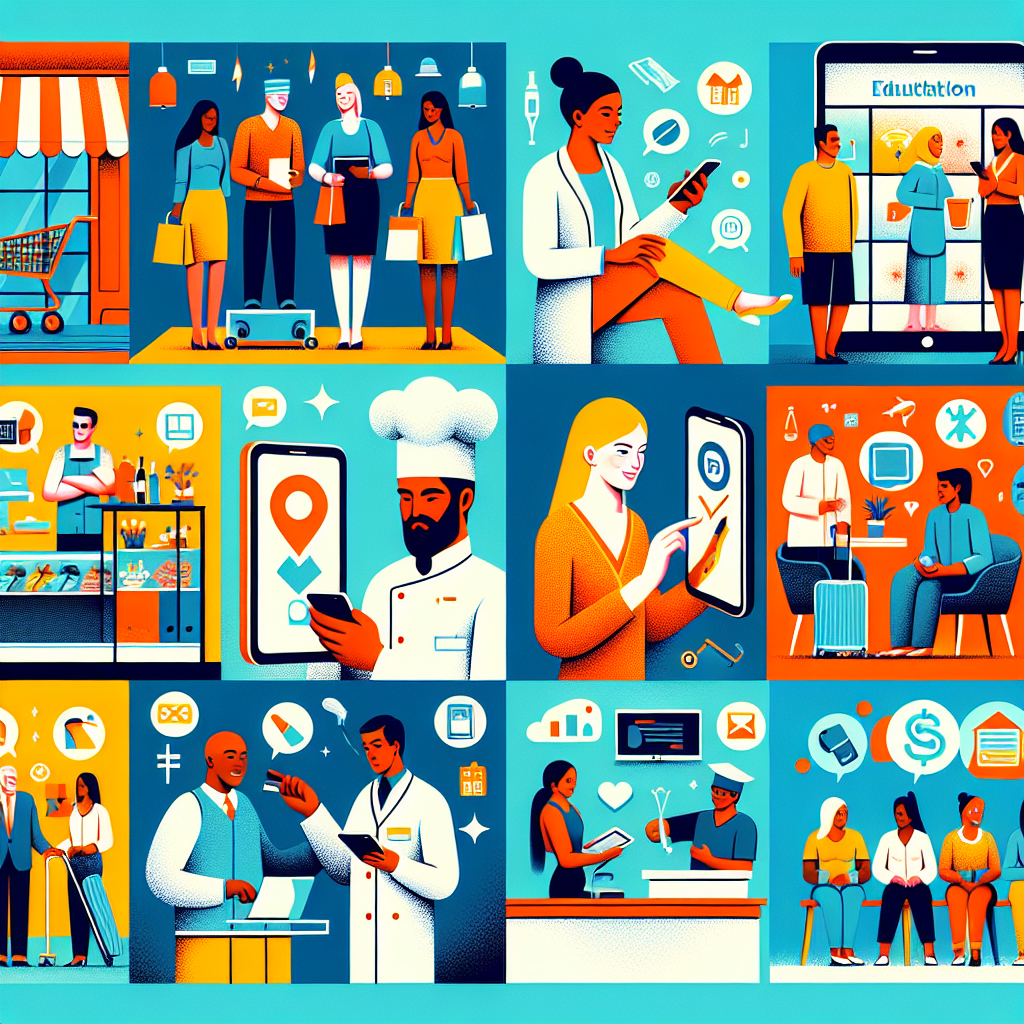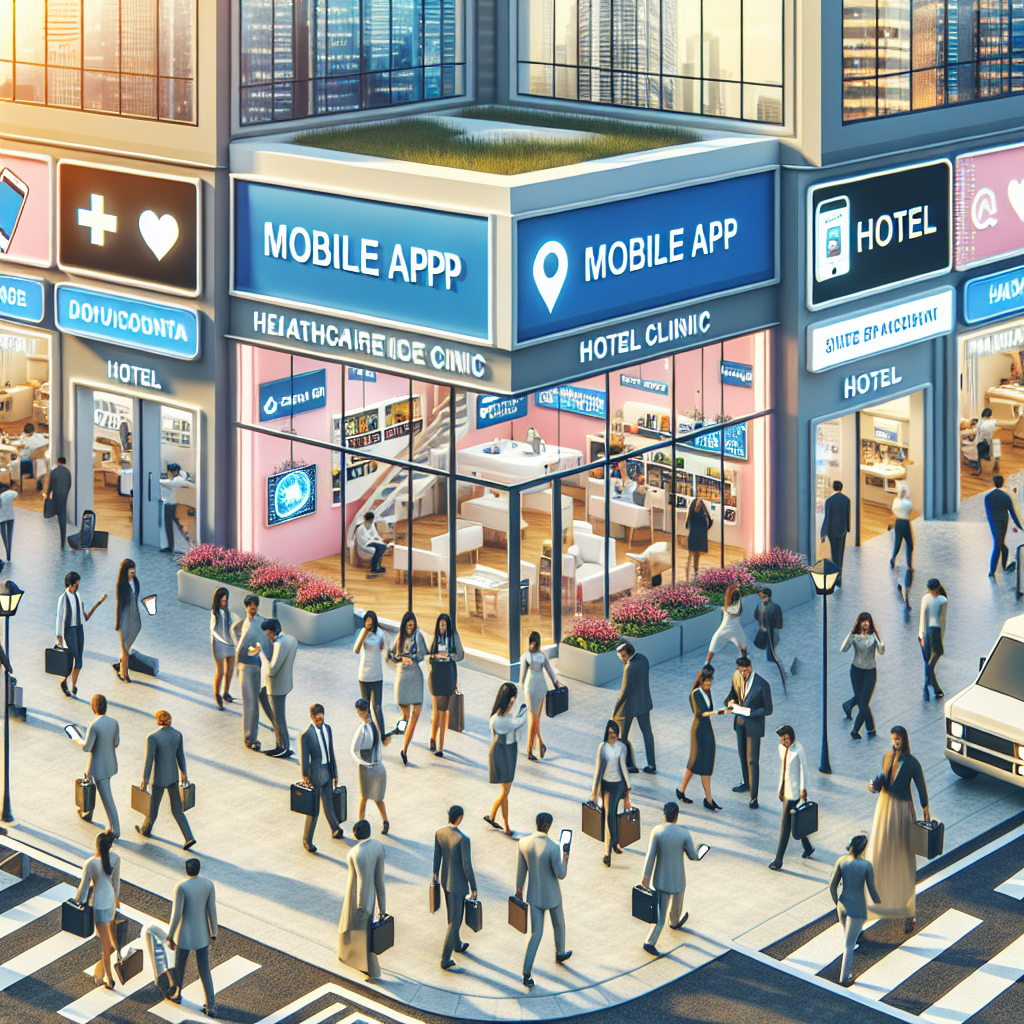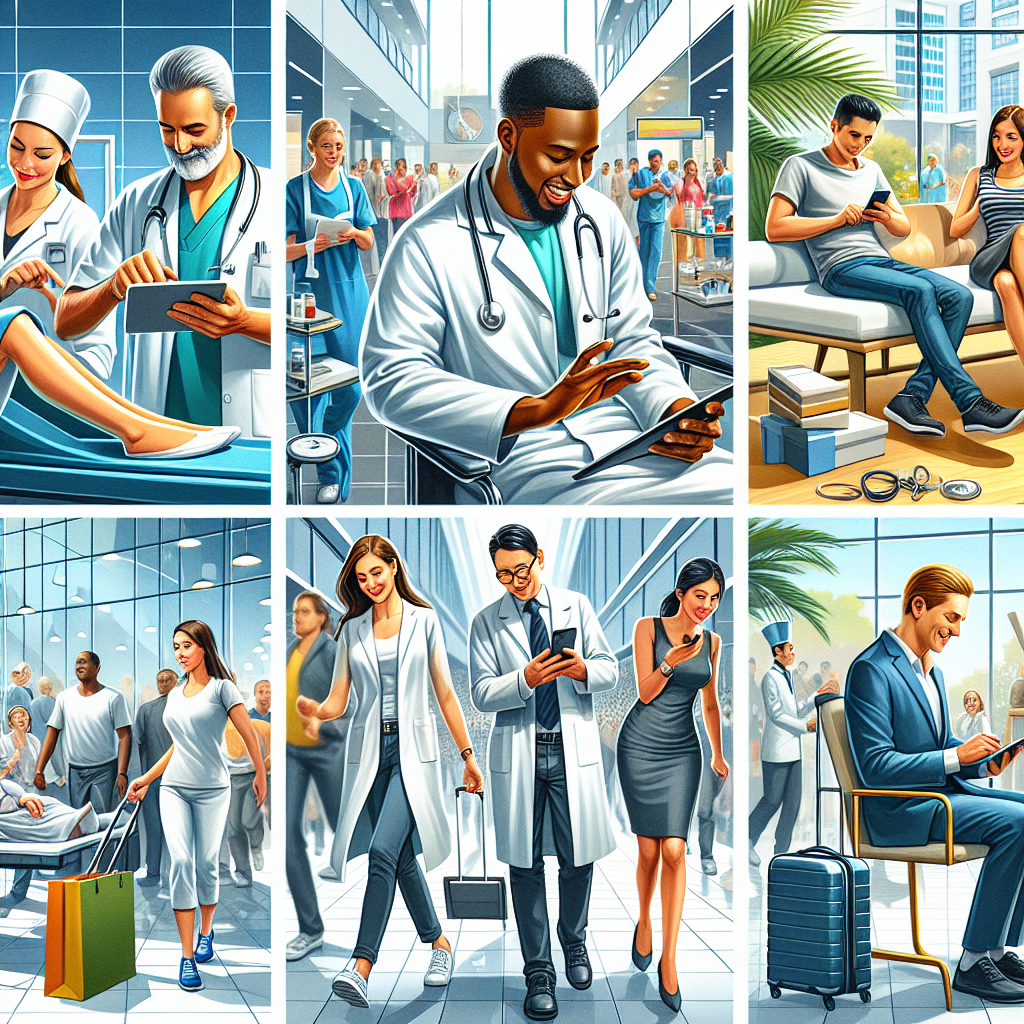In today’s fast-paced digital world, businesses across various sectors are increasingly recognizing the importance of mobile applications. The demand for mobile apps has surged as more consumers rely on their smartphones for everyday tasks, making it crucial for companies to adapt to this trend. From enhancing customer engagement to streamlining operations, mobile applications provide a myriad of benefits that can propel businesses forward.
Several industries that need mobile apps can leverage this technology to enhance their operational efficiency and customer satisfaction. For example, the retail sector can utilize mobile apps for e-commerce, loyalty programs, and personalized marketing. Similarly, healthcare providers are turning to mobile solutions for telemedicine, appointment scheduling, and patient management to improve care delivery.
Moreover, the hospitality industry is harnessing mobile technology to offer seamless booking experiences and personalized guest services. Educational institutions are also adopting mobile apps to facilitate learning and communication between students and educators.
With a comprehensive understanding of how mobile applications can transform various industries, it’s essential to explore the specific sectors that stand to gain the most from this technology. Book A Consultation Now! to discuss how your industry can benefit from mobile app development and drive success.
Healthcare Industry: Transforming Patient Care
The healthcare industry is undergoing a significant transformation, driven largely by the integration of mobile applications into patient care. These apps are revolutionizing how healthcare providers interact with patients and manage their operations. With the rise of telemedicine, mobile apps have enabled healthcare professionals to offer remote consultations and follow-ups, making it easier for patients to receive care without visiting facilities.
Mobile applications in healthcare can assist in various ways:
- Appointment Scheduling: Patients can easily schedule appointments, reducing wait times and optimizing clinic workflows.
- Medication Management: Apps can send reminders for medication doses, ensuring patients adhere to their treatment plans.
- Health Monitoring: Wearable devices can sync with mobile apps to track vital signs and health metrics, allowing for real-time monitoring of patients’ conditions.
- Patient Education: Healthcare providers can share educational resources, encouraging patients to take an active role in their health.
Moreover, mobile apps enhance communication among healthcare teams, allowing for efficient sharing of patient information and timely decision-making. As the healthcare landscape continues to evolve, the importance of mobile applications in enhancing patient care and operational efficiency becomes increasingly clear.
Retail Sector: Enhancing Customer Experience

The retail sector is rapidly embracing mobile technology to enhance customer experiences and streamline operations. As consumers increasingly rely on their smartphones for shopping, retailers are leveraging mobile applications to meet these demands and gain a competitive edge.
Mobile apps offer several valuable features for retailers:
- Personalized Shopping: Retail apps can analyze user behavior and preferences to provide personalized product recommendations, creating a tailored shopping experience.
- Seamless Transactions: Mobile payment options allow customers to complete purchases quickly and securely, enhancing convenience and reducing checkout times.
- Loyalty Programs: Many retailers use apps to facilitate loyalty programs, rewarding customers for repeat purchases and encouraging brand loyalty.
- Augmented Reality: Some retail apps incorporate AR features, enabling customers to visualize products in their own space before making a purchase.
Moreover, these applications provide retailers with critical data analytics, offering insights into customer preferences, purchasing behaviors, and market trends. This data can inform marketing strategies and inventory management, ultimately leading to increased sales and customer satisfaction.
In a highly competitive landscape, investing in mobile applications is essential for retailers aiming to engage customers effectively and enhance their overall shopping experience.
Education Sector: Facilitating Learning on the Go

The education sector is experiencing a transformation due to mobile technology, enabling learners and educators to engage in a more flexible and dynamic learning environment. Mobile applications are playing a crucial role in facilitating learning on the go, making education more accessible than ever.
Here are some key ways in which mobile apps are enhancing the educational experience:
- Access to Resources: Students can access a wealth of educational resources, including e-books, articles, and video lectures, directly from their smartphones, allowing for learning anytime, anywhere.
- Interactive Learning: Mobile apps often incorporate interactive features such as quizzes, games, and discussion forums, promoting engagement and enhancing retention of information.
- Communication Tools: Educators can use apps to communicate with students and parents, providing updates, feedback, and support in real-time.
- Personalized Learning: Many educational apps utilize algorithms to tailor content and learning paths to the individual needs of students, allowing them to progress at their own pace.
Furthermore, mobile applications can facilitate collaboration among students, enabling them to work together on projects and share resources easily. This fosters a sense of community and enhances the learning experience.
As educational institutions continue to embrace mobile technology, the potential for innovative learning solutions is vast, making it essential for schools, colleges, and universities to invest in mobile app development.
Travel and Hospitality: Streamlining Services

The travel and hospitality industry is rapidly evolving, with mobile applications at the forefront of this transformation. By streamlining services, these apps enhance the overall experience for travelers, making it more convenient and enjoyable. From booking accommodations to exploring local attractions, mobile technology is redefining how we travel.
Here are several ways mobile apps are streamlining services in this sector:
- Booking and Reservations: Mobile apps simplify the booking process, allowing users to find and reserve hotels, flights, and rental cars with just a few taps. This not only saves time but also offers users instant access to exclusive deals and promotions.
- Real-Time Updates: Travelers can receive real-time notifications regarding flight changes, delays, or gate changes, ensuring they stay informed throughout their journey.
- Personalized Recommendations: Many travel apps use data analytics to offer personalized suggestions for restaurants, attractions, and activities based on user preferences and past behavior.
- Itinerary Management: Mobile apps allow travelers to manage their itineraries in one place, integrating travel details, accommodation information, and activities for easy access.
Additionally, mobile applications in the travel and hospitality sector can enhance customer service by providing instant access to support and assistance, enabling travelers to resolve issues quickly and conveniently.
As the demand for seamless travel experiences continues to grow, investing in mobile app development becomes crucial for businesses aiming to stay competitive in this ever-evolving landscape.
Finance Industry: Securing Transactions and Services

The finance industry is experiencing a digital revolution, with mobile applications playing a pivotal role in securing transactions and enhancing services. As consumers increasingly rely on their smartphones for banking, investing, and financial management, the demand for secure and user-friendly mobile solutions has surged.
Here are key aspects of how mobile apps are transforming the finance sector:
- Enhanced Security: Modern finance apps incorporate advanced security features, such as biometrics, two-factor authentication, and encryption, ensuring that sensitive financial data is protected against unauthorized access.
- Real-Time Monitoring: Users can track their spending, investments, and account balances in real-time, providing them with better control over their finances and enabling informed decision-making.
- Streamlined Transactions: Mobile apps facilitate quick and easy transactions, allowing users to transfer funds, pay bills, or make purchases with just a few taps, significantly improving the overall user experience.
- Investment Management: Many finance apps offer tools for portfolio management, enabling users to buy and sell stocks, track market trends, and receive personalized investment advice at their fingertips.
Moreover, financial institutions are leveraging mobile technology to enhance customer support through chatbots and live chat options, ensuring that users receive assistance whenever needed. As the finance industry continues to innovate, mobile applications will remain essential for meeting the expectations of tech-savvy consumers.
To navigate the complexities of developing a secure and effective finance app, book a consultation now! Explore how we can help you create a successful mobile application tailored to the finance sector.
